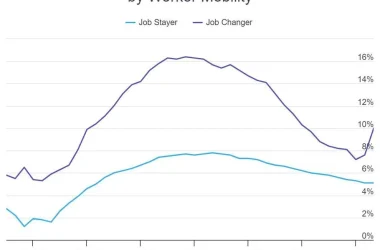By EVAN BEVINS
The Parkersburg News and Sentinel
PARKERSBURG, W.Va. — A CNBC report labeling West Virginia the worst state for business in 2017 doesn’t tell the whole story, local officials said.
Headlined “In an economic death spiral,” the article says the Mountain State scored 942 points out of a possible 2,500 from among weighted categories including workforce, infrastructure, cost of doing business, economy, quality of life, technology and innovation, education, business friendliness, access to capital and cost of living.
Illustrated with photos of coal mines and miners (all but one of which were taken in West Virginia), it emphasizes the decline of that industry, while also touching on the opioid epidemic, the low number of state residents over 25 — 12 percent — with a bachelor’s degree and the recent state budget struggle.
“The CNBC report certainly renews the conversation about how our state is perceived by the national media as solely a coal state, when in fact we know our entrepreneurs, business leaders and elected leaders are working hard to diversify our economy,” Jill Parsons, president and CEO of the Chamber of Commerce of the Mid-Ohio Valley, said via email. “We know our local and higher education institutions are working hard to diversify our workforce skill sets. We know renewed focus has been placed on infrastructure since West Virginia has a unique set of challenges due to our terrain.”
Pleasants Area Chamber of Commerce Executive Director Jody Murphy said there are many parts of the state that don’t rely as much on the coal industry as the southern coalfields. There is a great deal of federal government work in the Eastern Panhandle and Bridgeport areas, while the Mid-Ohio Valley has the oil and gas industry and some manufacturing, for example.
“We don’t have a coal mine within 80 miles of us,” Murphy said. “It’s a lot of different economies” around the state.
There are opportunities in the region, Murphy said, pointing to growth at the Cytec facility in Pleasants County. But reports like CNBC’s and ongoing news about the drug epidemic can cast the state in a bad light.
“It does make things a little harder to sell,” Murphy said. “By and large, when people Google West Virginia, they see ‘economic death spiral,’ they see opioid epidemic” and that can give them pause.
Wood County Economic Development Executive Director Lindsey Piersol said negative headlines like this usually don’t come up when she’s talking to businesses looking at the area, but it could have an impact.
“I think there’s a chance that it could affect us going forward, but I hope anybody who wants to do business with us, who knows anything about us, knows that we are more than an opioid epidemic, a shut-down coal-mining state,” she said.
Parkersburg Mayor Tom Joyce echoed that sentiment.
“They know, No. 1, what kind of people we have here in West Virginia. And those people are proud and patriotic and kind and accepting,” he said. “I think folks will find West Virginia to be a fantastic place to live and to work and to do business.”
Joyce said the state also has a great education system, which results in a solid workforce.
However, he acknowledged West Virginia has experienced some difficult economic times.
Joyce, Piersol and Murphy also noted that attracting new business is just part of the picture when it comes to the area’s economy.
“From a City of Parkersburg standpoint, our No. 1 priority is and should always continue to be to provide an environment to allow our existing businesses to be productive and continue to expand,” Joyce said.
Sometimes those expansions and gains are not obvious just from driving by, Piersol said, adding that she’s working with companies on five separate expansions now.
In addition, “we have people calling every day who want to open restaurants or retail,” she said.
Parsons noted there were a few areas where West Virginia fared well in the CNBC analysis, such as having the fourth-lowest cost of doing business.
“Our elected officials and state leadership can use the CNBC report as a basis for identifying opportunities and building on our strengths — look at other states for best practices and explore for relevance to West Virginia,” she said.
Parsons added that while studies like this try to use the most recent data, their information sometimes lags behind the latest developments and changes.
State Delegate John Kelly, R-Wood, said the Legislature has worked diligently to improve the state’s business climate, pointing to tort reform legislation passed in recent years and the controversial right-to-work policy that is currently the subject of litigation.
“I think we’ve made a lot of progress toward business development in the state of West Virginia,” he said. “I think this report is probably flawed.”
In response to the report, Gov. Jim Justice directed his criticism toward the Legislature, which rejected a number of his proposals for the state budget.
“”West Virginians need to know that the Legislature is keeping us in 50th place. They had the chance to follow my new ideas and go big, but instead, they turned their backs on every West Virginia family,” he said in a release this week. “This analysis from CNBC only confirms that what the Legislature is doing is not working, and if we don’t do something different we’ll all die 50th.”
Kelly declined to respond to the governor’s comments.
A closer look
To read the article on West Virginia: http://www.cnbc.com/2017/07/11/west-virginia-americas-worst-state-for-business-in-2017.html
* To review the methodology: http://www.cnbc.com/2017/06/12/heres-how-your-state-can-become-a-cnbc-top-state-for-business.html
See more from The Parkersburg News and Sentinel




